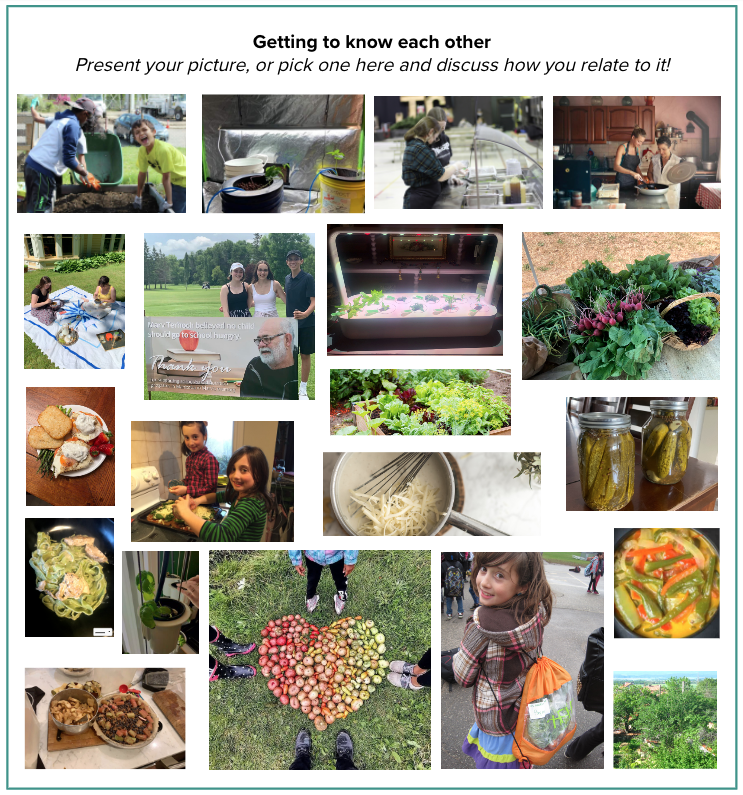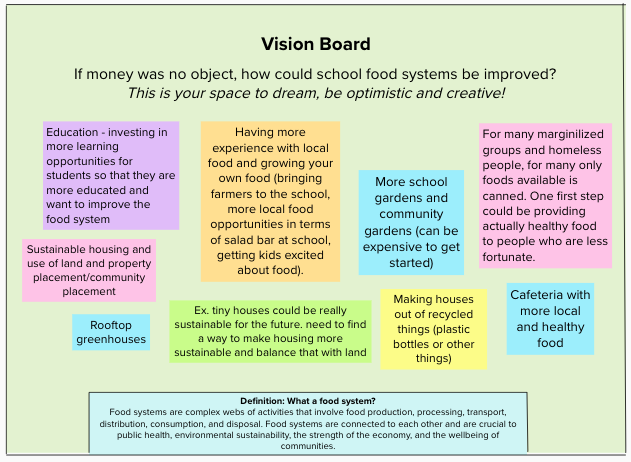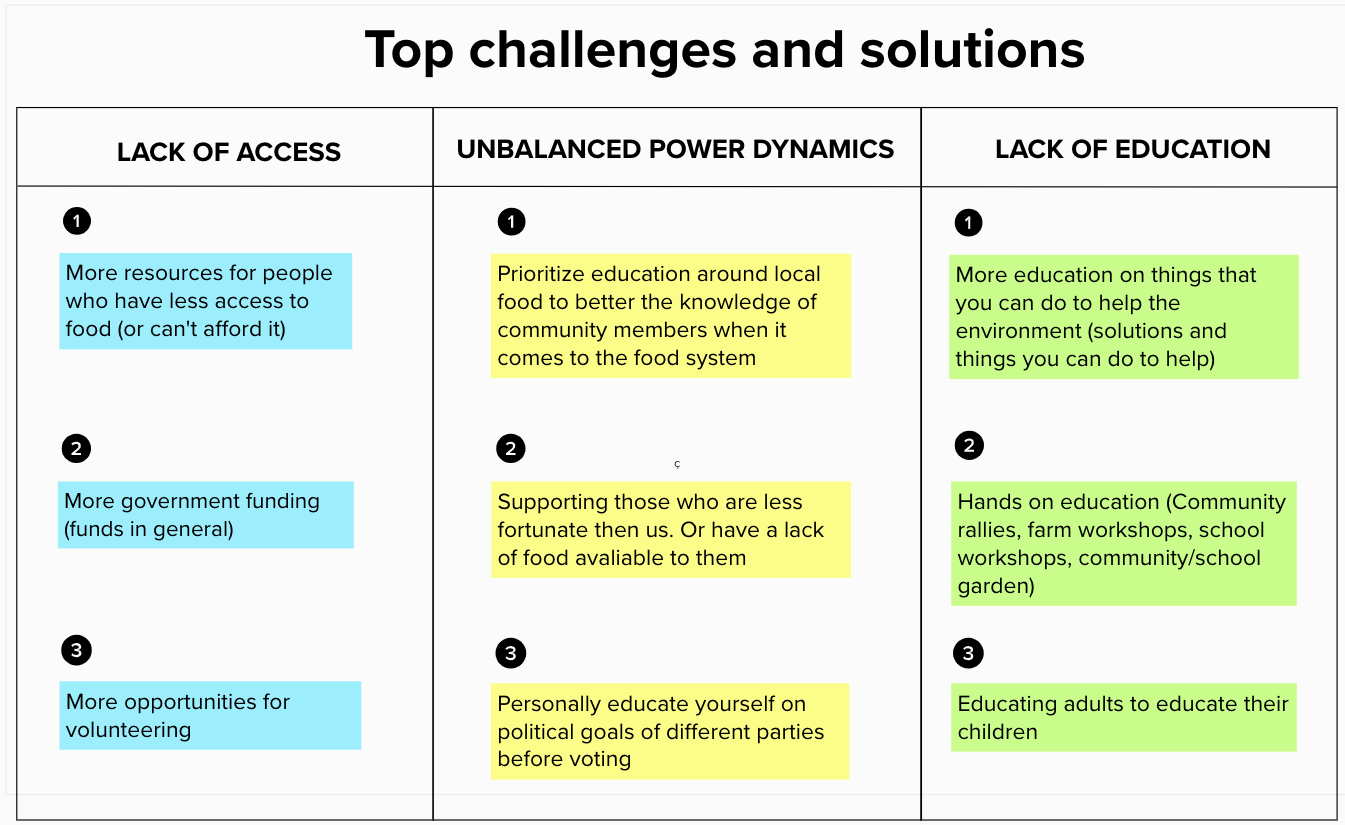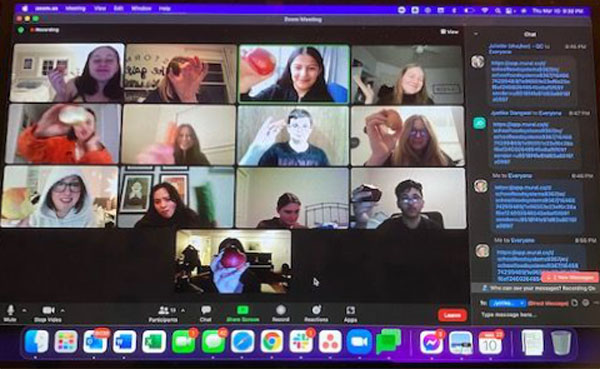Farm to Cafeteria Canada (F2CC) works towards realizing vibrant and sustainable food systems by supporting school communities to get more students get more kids growing, cooking, serving and eating local food at school.Through a recent strategic planning process, F2CC identified a need to create a National Youth Engagement Strategy that amplifies the voices of the Youth in Canada who are impacted by our work.
We decided that to develop a youth engagement strategy, we had to go right to the source by inviting youth to participate in shaping the strategy from the get-go and foster an environment where they felt comfortable exchanging ideas and feedback.
We developed two paths in which young people could participate in to share their perspectives: joining a youth voices working group or sharing a personal story about their own experience connecting to food or food systems. Although our work to collect feedback will be ongoing, we’ve already learned so much thanks to all of the individuals who took the time to contribute to either one, or both, of these two paths. We’re thrilled to share a few updates on our work with these youth so far.
Youth Voices Working Group: Bright Minds Come Together
During the first two months of the year, we invited youth ages 15-20 interested in vibrant and sustainable regional food systems to participate in our Youth Voices Working Group.
The following 4 workshops were held over 3 weeks in March:
• Workshop 1: Getting to know each other
• Workshop 2: Challenges and opportunities
• Workshop 3: Solutions and actions
• Workshop 4: Recommendations
The goal of the workshops was to create a space where youth felt comfortable and inspired to share how they felt F2CC could best support them to connect with, learn about and participate in their food systems.
We recruited 12 youth from across Canada who expressed interest in collaborating with us on this project, and held four 90-minute workshops with them throughout the month of March. Whether they were passionate about food systems, youth engagement, health, social justice or environmental issues, each youth brought something unique and valuable to the workshop table.
From the very first workshop, the participants uncovered ideas and reflections that centered around the challenges to improving food systems, the potential solutions for each challenge, and the concrete actions that can be taken as part of a collaborative approach to these solutions.



By the end of the month, the seed reflections which emerged from the workshop activities had grown into concrete ideas that we used as a guide to develop the following recommendations:
F2CC should work to support youth by:
- Engaging decision makers and people in positions of authority to create channels and opportunities to listen directly to youth about their wants and needs on how to improve food systems.
- Raising youth awareness of their personal connection to food systems and how youth involvement can positively influence food movements.
- Working with schools to create more opportunities for students to experience hands-on learning making school connections to their local food system.
- Sharing youth volunteer and/or employment opportunities in roles that will contribute to a healthier food system in their community and deepen their community connections.
Youth Stories: What Food Personally Means to Youth
Through the “Youth Stories” path, we invited youth to share their experiences, hopes and dreams relating to growing, harvesting, cooking, eating or sharing food in their school community in the form of a story. The story could take any form: a photo essay, a video, a voice recording or even a poem.
So far, five youth have shared stories, including Juliana, Audrey and Nasion, Ashiana and Nicholas. Below, we share just a few snippets of what these five youth shared with us in their stories:






